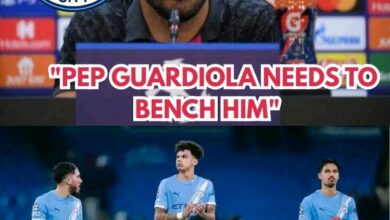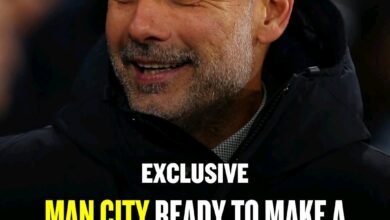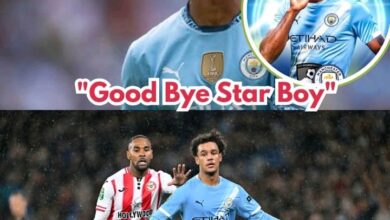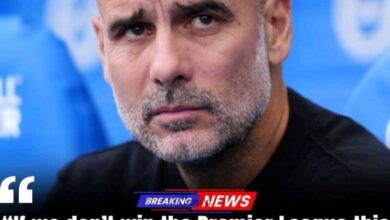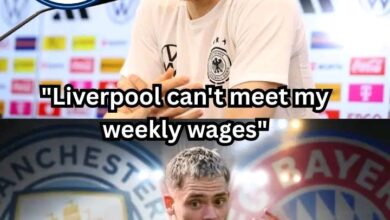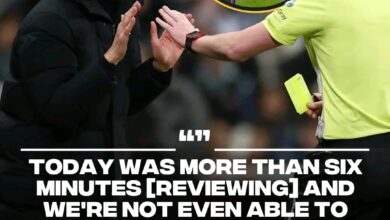Romano: “Agreement sealed” as Man City win race and sign 18 y/o ex-PSG gem
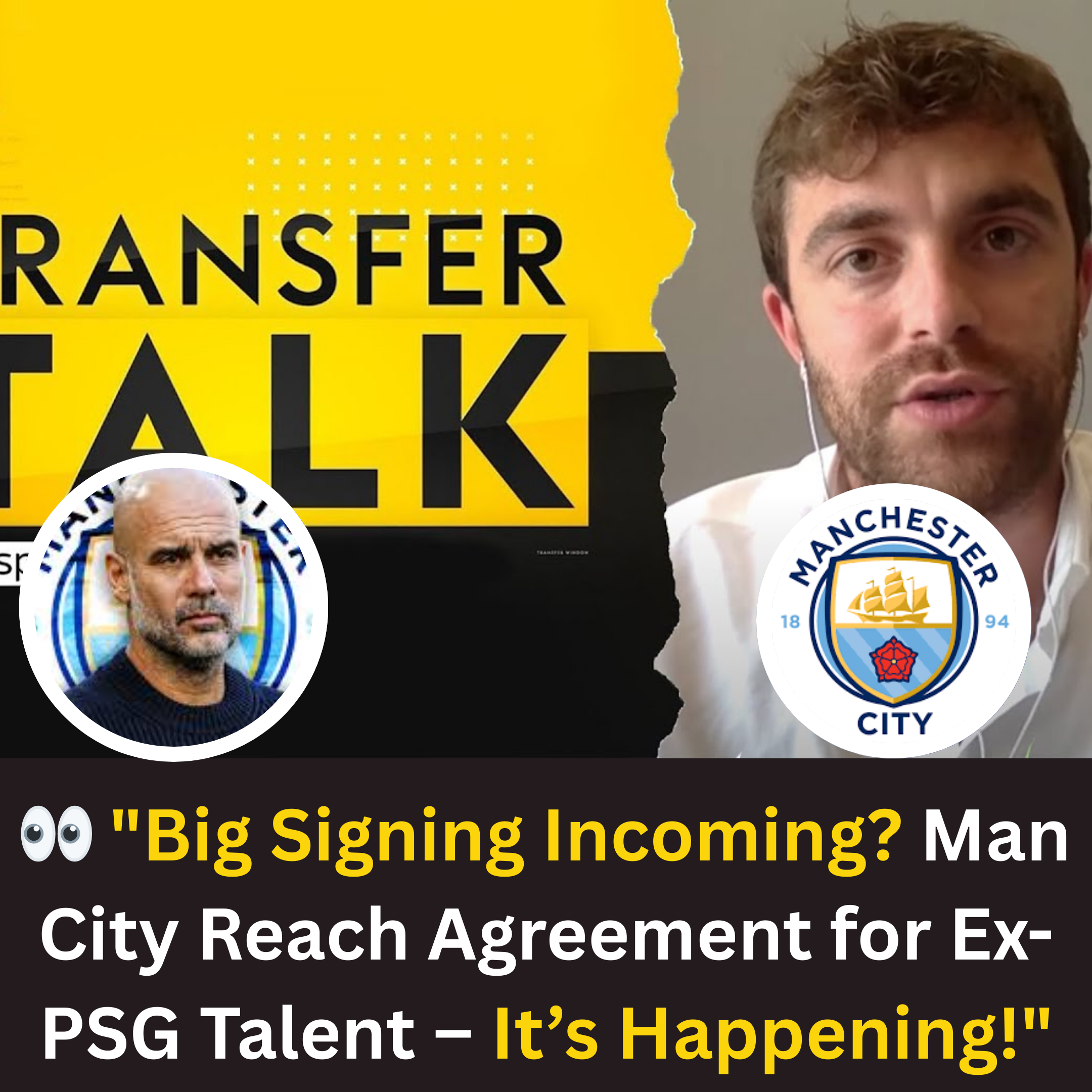
Manchester City’s summer transfer window has been characterized by a blend of strategic acquisitions and unexpected disappointments, painting a complex picture of the club’s ongoing evolution under Pep Guardiola’s stewardship. The Citizens have demonstrated their commitment to refreshing their squad with young talent while navigating the increasingly competitive transfer market that has seen several high-profile targets slip through their fingers.
The club’s approach this summer reflects a deeper understanding of the need for regeneration following what many observers described as a somewhat lackluster 2024/25 campaign. While City remained competitive across all fronts, there were signs of fatigue and staleness within certain areas of the squad, prompting the coaching staff and recruitment team to identify key areas for improvement and inject fresh energy into the group.
The Sangare Acquisition: A Glimpse into City’s Future
The most recent development in Manchester City’s transfer activities centers around their successful pursuit of Mahamadou Sangare, a promising young forward who has recently departed Paris Saint-Germain. According to transfer specialist Fabrizio Romano, the Premier League champions have successfully concluded negotiations for the French youth international, with an agreement now in place that will see Sangare make the move to the Etihad Stadium.
This signing represents a fascinating insight into City’s long-term planning and their commitment to identifying and nurturing the next generation of football talent. Sangare, who represents France at the Under-18 level, brings with him the kind of raw potential that has become synonymous with City’s academy and development programs. His background at Paris Saint-Germain, one of Europe’s most prestigious clubs, suggests he has already been exposed to the highest levels of coaching and tactical sophistication.
The completion of Sangare’s transfer, with Romano confirming that the young forward has “signed his contract” with the Sky Blues, demonstrates City’s ability to act decisively in the transfer market when they identify a target that fits their specific criteria. This signing also reflects the club’s confidence in their ability to develop young talent, having previously transformed promising youngsters into first-team regulars and, in some cases, world-class performers.
The Gibbs-White Disappointment: A Setback in City’s Plans
However, not all of City’s summer pursuits have concluded successfully. The club has suffered a significant setback in their attempts to secure the services of Morgan Gibbs-White, the dynamic Nottingham Forest midfielder who had emerged as a priority target for Guardiola’s side. Despite City’s efforts to negotiate a deal and their success in agreeing personal terms with the England international, the transfer has ultimately fallen through due to Tottenham Hotspur’s decisive intervention.
The North London club’s decision to trigger the £60 million release clause in Gibbs-White’s contract has effectively ended City’s hopes of securing his signature. This development represents a particularly frustrating outcome for City, given that they had seemingly done much of the groundwork necessary to complete the transfer. The agreement of personal terms with Gibbs-White suggested that the player was receptive to the idea of joining the reigning Premier League champions, making Tottenham’s late intervention all the more disappointing.
The speed with which Tottenham has moved to secure Gibbs-White’s services, with a medical examination scheduled for Friday and the transfer expected to be completed imminently, highlights the increasingly competitive nature of the modern transfer market. It also demonstrates how quickly situations can change in football, with clubs needing to be prepared to act with both speed and decisiveness when opportunities arise.
Analyzing Gibbs-White’s Impact and City’s Loss
The loss of Gibbs-White represents more than just a missed opportunity for Manchester City; it constitutes a genuine setback in their efforts to strengthen their squad for the upcoming campaign. The 24-year-old midfielder enjoyed an exceptional season with Nottingham Forest, establishing himself as one of the most consistent and creative players in the Premier League outside of the traditional “big six” clubs.
Gibbs-White’s statistical output during the previous campaign was particularly impressive, with his ability to create chances, drive forward with the ball, and contribute goals from midfield making him an ideal fit for Guardiola’s system. His versatility, being capable of operating in multiple positions across the attacking midfield and forward line, would have provided City with valuable tactical flexibility.
The player’s development trajectory over recent seasons has been remarkable, transforming from a promising youngster at Wolverhampton Wanderers to a key performer for both club and country. His ability to perform consistently at the highest level, combined with his relatively young age, made him an attractive proposition for City’s long-term planning.
Furthermore, Gibbs-White’s familiarity with the Premier League and his proven ability to handle the physical and tactical demands of English football would have made his integration into City’s squad relatively straightforward. This domestic experience often proves invaluable for clubs looking to make immediate improvements to their squads without the adaptation period that often accompanies international transfers.
The Broader Context of City’s Summer Recruitment
The Sangare signing and Gibbs-White disappointment must be viewed within the broader context of Manchester City’s summer transfer activity. The club has already made significant investments in their squad, bringing in players who are expected to contribute both immediately and in the longer term.
The arrival of Rayan Ait-Nouri from Wolverhampton Wanderers represents a significant coup for City, with the Algerian left-back having established himself as one of the most promising full-backs in the Premier League. His pace, technical ability, and tactical awareness make him an ideal fit for Guardiola’s system, providing both defensive solidity and attacking thrust down the left flank.
Similarly, the acquisition of Tijjani Reijnders from AC Milan demonstrates City’s continued commitment to identifying and securing the best young talent from across Europe. The Dutch midfielder’s performances in Serie A had attracted attention from numerous top clubs, making City’s successful pursuit of his signature a testament to their pulling power and strategic planning.
The signing of Rayan Cherki from Olympique Lyonnais further reinforces City’s focus on youth and potential. The French attacking midfielder’s technical skills and creativity provide Guardiola with additional options in the final third, while his age profile aligns perfectly with the club’s long-term vision.
Tactical Implications and Squad Integration
The addition of Sangare to City’s roster raises interesting questions about how Guardiola plans to integrate the young forward into his tactical system. The Spaniard’s ability to develop young players and incorporate them into his sophisticated tactical framework has been one of his greatest strengths throughout his career, and Sangare will likely benefit from this expertise.
City’s recent signings suggest a continued evolution in their tactical approach, with an emphasis on versatility and technical ability across all positions. The club’s success in recent years has been built on their ability to adapt their playing style to different opponents and situations, and the addition of players like Sangare provides further options for tactical variation.
The young forward’s development at Paris Saint-Germain will have exposed him to high-level tactical concepts and training methods, providing a solid foundation for his continued growth at City. His experience in French football, while different from the Premier League, will have developed his understanding of the game’s tactical nuances.
The Financial Landscape and Transfer Strategy
Manchester City’s summer transfer activity also reflects the club’s careful navigation of the current financial landscape in football. The implementation of Financial Fair Play regulations and the ongoing scrutiny of club spending has required even the wealthiest clubs to be more strategic in their approach to the transfer market.
The successful completion of the Sangare transfer, likely for a relatively modest fee given his age and experience level, demonstrates City’s ability to identify value in the market. This approach allows the club to invest in potential while maintaining financial flexibility for future transfer windows.
The loss of Gibbs-White to Tottenham, while disappointing, may ultimately prove beneficial from a financial perspective. The £60 million price tag associated with the England international represented a significant investment, and City’s decision not to engage in a bidding war shows their commitment to maintaining financial discipline.
Youth Development and Academy Integration
The signing of Sangare also highlights Manchester City’s continued commitment to youth development and their belief in the potential of young players. The club’s academy has become one of the most successful in world football, producing numerous first-team players and generating significant revenue through player sales.
Sangare’s arrival provides an opportunity to assess whether external young talent can be successfully integrated into City’s development pathway. His previous experience at Paris Saint-Germain, another club with a strong focus on youth development, suggests he possesses the mental and physical attributes necessary to succeed in elite football.
The club’s track record in developing young players, from Phil Foden to Rico Lewis, demonstrates their ability to create pathways from academy football to first-team action. Sangare will likely follow a similar development trajectory, with opportunities to impress in training and lower-level competition before potentially breaking into the senior squad.
Competitive Implications and League Dynamics
The transfer activities of Manchester City, including both successful signings and missed opportunities, have broader implications for the competitive balance within the Premier League. The league’s increasing competitiveness has made it more challenging for any single club to dominate the transfer market, as demonstrated by Tottenham’s successful intervention in the Gibbs-White situation.
This increased competition extends beyond just the traditional “big six” clubs, with newly wealthy clubs and ambitious mid-table teams now capable of competing for top talent. This dynamic has forced clubs like City to be more creative and strategic in their approach to recruitment, focusing on identifying undervalued talent and developing players through their academy systems.
The loss of Gibbs-White to Tottenham also represents a shift in the power dynamics within the Premier League, with Spurs demonstrating their ability to compete with the league’s wealthiest clubs for top talent. This development suggests that the upcoming season could see a more evenly distributed talent pool across the top clubs.
Future Prospects and Long-term Planning
Looking ahead, Manchester City’s summer transfer activity sets the stage for an intriguing period of transition and development. The combination of experienced signings and young prospects like Sangare suggests the club is preparing for both immediate success and long-term sustainability.
The integration of new players into Guardiola’s system will be crucial for City’s prospects in the upcoming season. The Spanish manager’s ability to quickly incorporate new signings into his tactical framework has been a key factor in the club’s recent success, and this skill will be tested once again as the new additions settle into their roles.
The club’s continued focus on youth development, exemplified by the Sangare signing, suggests they are well-positioned for the future. As Financial Fair Play regulations continue to shape the transfer market, clubs with strong academy systems and development programs will have significant advantages over those relying primarily on expensive signings.
Conclusion: A Mixed but Promising Summer
Manchester City’s summer transfer window has been characterized by both success and disappointment, reflecting the complex realities of modern football recruitment. The successful acquisition of Mahamadou Sangare demonstrates the club’s ability to identify and secure promising young talent, while the loss of Morgan Gibbs-White to Tottenham serves as a reminder of the competitive nature of the current transfer market.
The broader context of City’s summer activity suggests a club that remains committed to excellence while adapting to changing circumstances. The balance between immediate needs and long-term planning evident in their transfer strategy positions them well for continued success, even as the competitive landscape continues to evolve.
As the new season approaches, the true value of City’s summer recruitment will become apparent on the pitch. The integration of new signings, the development of young prospects like Sangare, and the team’s ability to adapt to the loss of potential additions like Gibbs-White will all play crucial roles in determining the club’s success in the months ahead.
The football world will be watching with interest to see how these new additions contribute to City’s quest for continued dominance, while the development of young talents like Sangare may provide glimpses of the club’s future beyond the current generation of stars. In the ever-evolving landscape of elite football, Manchester City’s summer transfer activity demonstrates both the challenges and opportunities that define the modern game.






